David's recent articles
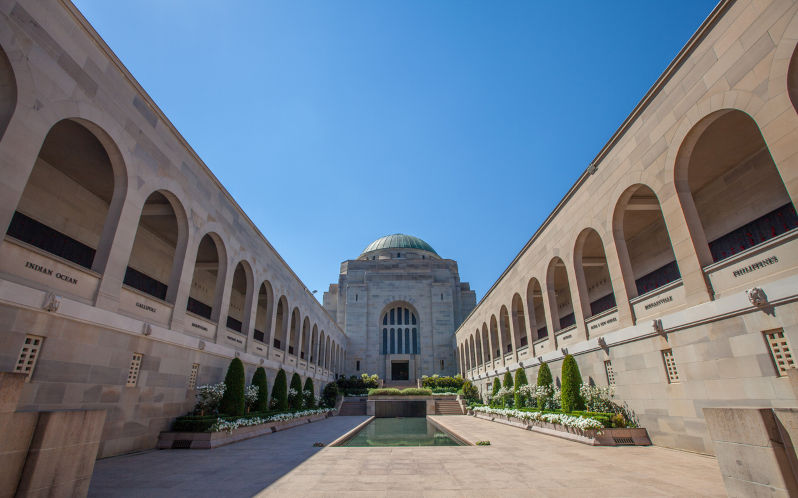
6 May 2025
Kate Grenville’s questions about our 5000 war memorials
Now that Anzac Day is done and dusted for another year, it’s time to look at Australia’s continuing war obsession from a different angle. The late distinguished historian, Ken Inglis, estimated there are between 4000 and 5000 war memorials in Australia. They are in large cities, suburbs, regional towns and villages, and on crossroads where villages once stood.

4 April 2025
The Frontier is the way ahead for the War Memorial
“Sacrifice”, the ABC Four Corners episode of 10 March, was a train-wreck for the Australian War Memorial. Its spokespersons came across as dismissive, timid, or too clever by half. The critics of the Memorial, however, were passionate, regretful, and, in the case of Geoffrey Watson SC from the Centre for Public Integrity, downright angry.
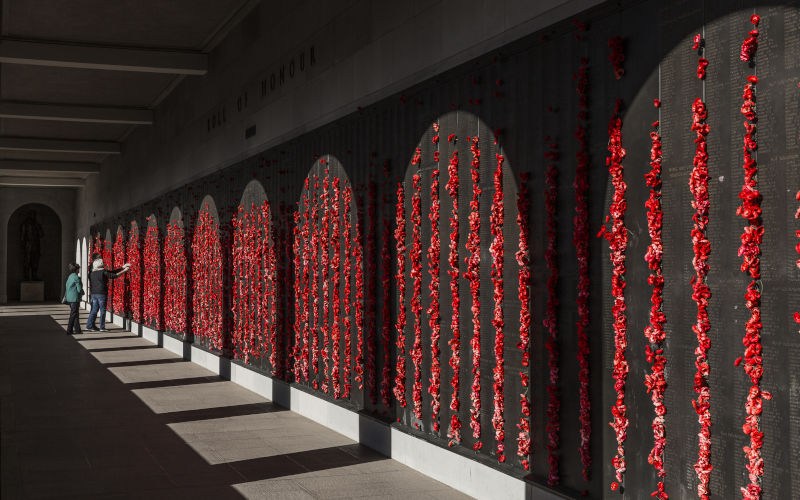
25 April 2024
Red poppies and bare ground: Why do we discriminate among our war dead?
The 100 000 or so dead men and women in Australia’s overseas wars are symbolised by red poppies, on the Roll of Honour at the Australian War Memorial in Canberra, in shrines around the nation, on the more than 5000 war memorials in our towns and suburbs, in war cemeteries overseas, and worn on Anzac and Remembrance Days.

2 January 2024
New Year’s resolution for Minister Keogh: refresh the War Memorial Council
The Minister for Veterans’ Affairs, Matt Keogh, should refresh the Council of the Australian War Memorial, which at present looks like a cosy club of well-connected conservatives and ex-military types. He can do this by replacing up to five Council members when their terms expire between February and April 2024.

16 December 2023
Our War Memorial needs to show courage on Frontier Wars
One wonders what our legendary generals and our volunteer soldiers in many wars would have made of the dithering and dissembling at the top level of the Australian War Memorial on how it deals with the Australian Frontier Wars, a defining part of our Australian history.

23 October 2023
After the Voice: Beazley’s opportunity for truth-telling at War Memorial
Post-Referendum attention has turned to the need for Truth-telling about our history. As Chair of the Council of the Australian War Memorial, Kim Beazley has a unique opportunity to grasp Truth-telling about the Australian Frontier Wars as a central theme for the Memorial in future.

2 August 2023
Making the best of the Ben Roberts-Smith fiasco
There may be an upside to the Ben Roberts-Smith case. Not for the family of Ali Jan or the people of Afghanistan. Not particularly for Roberts-Smith and the men of the SAS, past and present, or their commanders, only some of whom deserve an upside. No, an upside for the rest of us, Australians all.

6 July 2023
Dam Busters and ‘Anzackery’ at the War Memorial
Treasuring old stuff and old stories is something the Australian War Memorial does a lot of. Recently, the Memorial made much of an artefact from the Dam Busters Raid of May 1943. The artefact was a model of a dam with surrounding countryside. The suggestion was that RAF Bomber Command had studied it or something similar as it prepared for the assault, codenamed Operation Chastise.

16 April 2023
Australian Frontier Wars: credibility gap at the War Memorial
There is a gap between Kim Beazley’s assurances about how the Australian War Memorial will properly recognise and commemorate the Australian Frontier Wars and what is actually being planned at the Memorial as it continues its $548m redevelopment. Action is needed now to get the Memorial on track.
13 March 2023
"From the Big Build via the Frontier Wars to Boeing": Brendan Nelson’s autobiography Part II
Part I of this review noted that Brendan Nelson met lots of people.
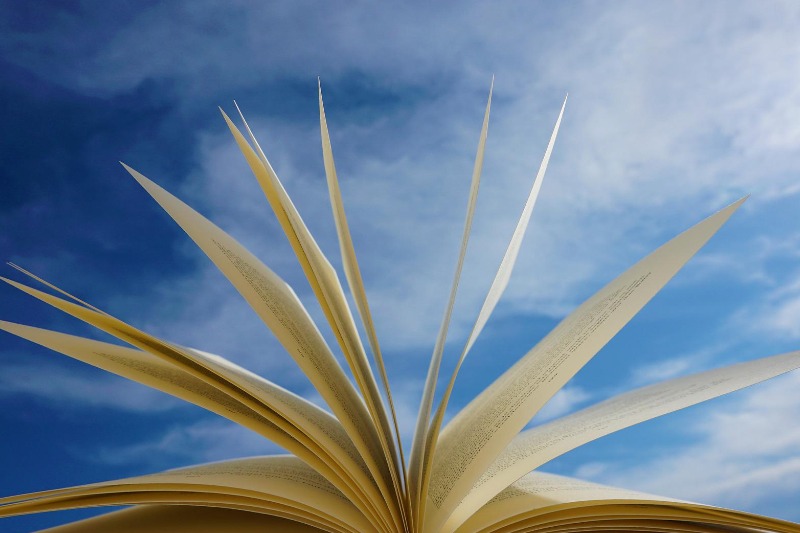
12 March 2023
"A narcissist always searching for a new niche?" Brendan Nelson’s autobiography: Part 1
Nelson has been described as a bullshit artist, a narcissist, a charlatan, oleaginous, and having a glass jaw. Each descriptor is incomplete, some even unfair. Yet, throughout his career he has been popular across the political spectrum. Why?

13 December 2022
The War Memorial plays along with Lockheed Martin
Senator David Shoebridge, a new Green from New South Wales, tabled a document in Senate Estimates on 8 November which showed just how keen the Australian War Memorial has been to oblige its corporate donors.
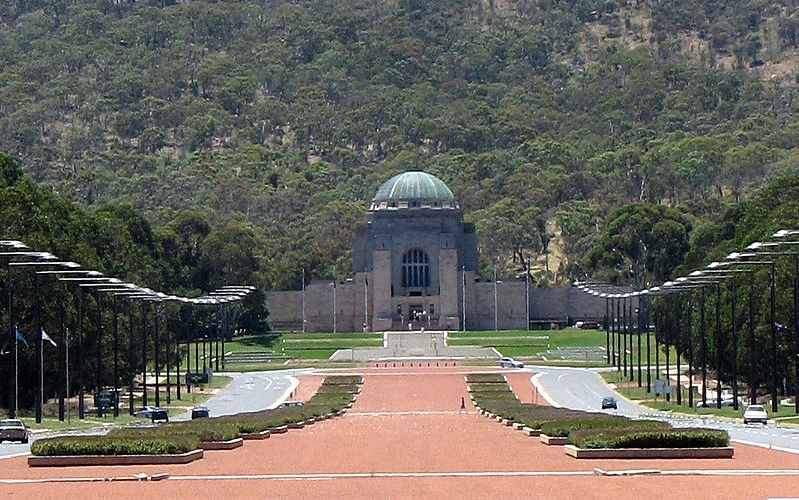
5 December 2022
The War Memorial is again running away from the Frontier Wars
The Australian War Memorial has passed from then Council Chair Brendan Nelson’s 29 September announcement of a “much broader, much deeper” treatment of Australian frontier violence to today’s buzzwords of “proportionate” and “modest”. The people who welcomed what looked like a change in direction at the Memorial have the right to feel dudded.

12 October 2022
Startling events at the Australian War Memorial
Small but significant metaphorical explosions have reverberated recently around the building that some Australians know as our most sacred site.
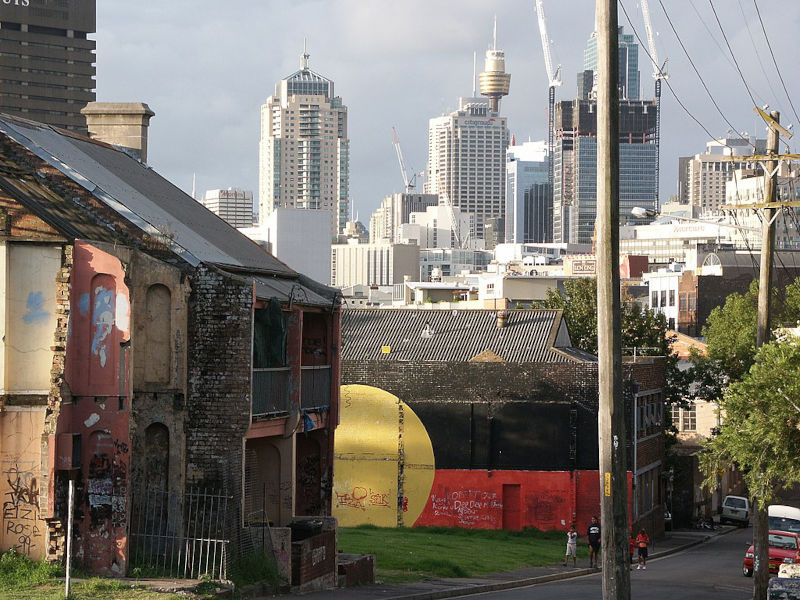
18 August 2022
‘Uluru Statement shows the way on Australian Frontier Wars’
In an earlier article for Pearls and Irritations I wrote, ‘Proper recognition and commemoration of the Australian Frontier Wars at the Australian War Memorial would be a practical expression of the Spirit of Uluru’. The Uluru Statement from the Heart is more than resonant prose. Its words about First Nations people taking their rightful place in their country, about how First Nations culture can be a gift to all Australians, and, most of all, on truth-telling about our past, all provide signposts for action.

7 August 2022
Australian War Memorial needs to own Australian frontier wars
Proper recognition and commemoration of the Australian Frontier Wars at the Australian War Memorial would be a practical expression of the Spirit of Uluru. As the Albanese government begins the lengthy process of enshrining the Voice in the Australian Constitution, having the Memorial commit to Australian Frontier Wars recognition and commemoration could happen soon – provided the will exists in both the Memorial and the government.

11 November 2021
Australian War Memorial expansion is a disgrace beyond words
Words matter, and the way the Australian War Memorial's spruikers talk about its expansion and displays speaks volumes.
30 May 2021
Everyman as soldier: how men in suits in drawing rooms conned the people – and their families – into fighting on in WW1.
David Stephens reviews Douglas Newton’s Private Ryan and the Lost Peace: A Defiant Soldier and the Struggle against the Great War.
23 April 2021
It's not what they know, it's what they choose to tell us: reading the Australian War Memorial
Many more things happened in the past than are recorded in history. Some versions persist. Others have currency for a time, then get put aside, because fashions change or because the version does not fit political agendas or notions of what audiences expect. Some versions have been sanitised. Others are just suppressed. The Australian War Memorial has form in this regard, although there are some glimpses of change.
27 August 2020
Performing Anzac: Brendan Nelson and the emotion of remembrance
Dr Brendan Nelson came out swinging recently, providing a submission to the Public Works Committee defending the project he championed, the $498 million makeover of the Australian War Memorial.
24 April 2020
DAVID STEPHENS. Anzac Day and History as What we Choose to Remember
The Covid-19 pandemic has been compared with the Spanish Flu pandemic of 1918-19. That many of us knew nothing about that disaster of a century ago shows that history is what we choose to remember.
31 January 2020
DAVID STEPHENS. What will be the Nelsonian Legacy at the Australian War Memorial?
When it was announced that Dr Brendan Nelson was finishing up as Director of the Australian War Memorial, the Chair of the Memorial Council, Kerry Stokes, said Dr Nelson’s ‘enduring legacy’ will be the Memorial’s $498 million expansion program. There is a strong argument, however, that a more notable Nelsonian legacy is the Memorial’s eagerness to chase and receive donations from arms manufacturers.
25 April 2019
DAVID STEPHENS. Beneath the tumult and the shouting: Anzac Day as a private experience.
Anzac should be mostly private. It should be about the quiet, within-family, remembrance of – and caring about – people who have suffered in war, those who have been killed and not come home, those who have come home injured in body or mind, and those who live with the memory of the dead and the reality of the living.
23 April 2019
DAVID STEPHENS -People against the War Memorial’s grandiose extensions project.
On 23 March, the Canberra Times carried a story about an open letter from 83 distinguished Australians opposing the plan to spend $498 million on extensions to the Australian War Memorial.
26 March 2019
DAVID STEPHENS. This is why the $498m extensions to the Australian War Memorial should not go ahead
Saturday’s Nine (Fairfax) newspapers carried a story about 83 distinguished Australians signing a letter opposing the plan to expand the Australian War Memorial in Canberra at a cost of $498m. The letter says the extensions cannot be justified, they show the Memorial is being given preference over other national institutions, and the money could be better spent. The letter and the full list of signatories.
5 December 2018
DAVID STEPHENS. If the Australian War Memorial holds "the soul of the nation" why is the Memorial Council so full of brass?
The Director of the Australian War Memorial, Dr Brendan Nelson, often tells us that in the Memorial can be found ‘the soul of the nation’. The Prime Minister said the same thing, just the other day. Accepting for the moment that this characterisation is correct, why is it that eight of the 13 members of the Memorial’s Council are serving or retired senior officers (Lieutenant Colonel/equivalent or above)? Does our national soul, if such it is, need that much military brass? Does a body containing that much brass make a particular sound? Should the Council look more like the...
2 November 2018
DAVID STEPHENS. A grandiose commemorative project for Canberra raises lots of questions
There has been for some time an air of inevitability about the extensions to the Australian War Memorial, a project announced on Thursday by the Prime Minister and Memorial Director, Dr Brendan Nelson. Serious questions remain, however, about this grandiose undertaking, which is known irreverently to some observers as the Brendanbunker and could be seen as a legacy of Dr Nelson’s term.
30 October 2018
DAVID STEPHENS. Did the War Memorial deliberately mislead the Parliament about the money it gets from arms companies – or is it just careless about accountability? (Honest History 26.10.2018)
The Senate Hansard for 25 July 2018 contained the Australian War Memorial’s answer to Question 166from the Senate Foreign Affairs, Defence and Trade (FADT) Committee (question asked by then Senator Rhiannon in Estimates). The answer included a table that purported to show figures for the value of financial contributions that the Memorial received from military and defence companies over three years.
18 September 2018
DAVID STEPHENS. The Australian War Memorial admits receiving $1,271,473 over three years in donations from military and defence firms.
During Budget Estimates hearings, then Greens Senator Lee Rhiannon (NSW) asked Dr Brendan Nelson, Director of the Australian War Memorial, how much the Memorial had received in donations from military and defence firms. The answer covered the years 2015-16, 2016-17, 2017-18 year to date, which would have been almost the full year, as the answer was posted in Hansard on 25 July 2018.
25 April 2018
DAVID STEPHENS. Lest We Forget again: Anzac Day is an opportunity to confront our violent frontier past and its shadow today.
Yassmin Abdel-Magied, a young Somali-Australian Muslim woman, was driven out of Australia last year after she implied that the Anzac sacred cow might be ready to graze new territory. ‘Lest. We. Forget.’, she said, ‘(Manus, Nauru, Syria, Palestine …)’. I thought she was on the right track and I said so, copping some of the bilious and vicious response that she herself received. Yet, surely, after a century we can move beyond dead soldiers and broaden the remembrance focus to other weighty matters where Australians bear some responsibility and where they should have some interest in making things right. Such...
11 April 2018
DAVID STEPHENS. Brendan Nelson’s bunker and with cap in hand: contrasts in funding our national cultural institutions
The Director of the Australian War Memorial, Dr Brendan Nelson, has been spruiking the Memorial’s plans for a massive expansion. He showed the ABC’s Andrew Greene around the Memorial, pointing out its need for more space, particularly to show big exhibits like helicopters and jet fighters, as well as for telling the story of current and recent military campaigns. (Paul Daley comments in Guardian Australia.)
5 October 2017
DAVID STEPHENS. Who's Schlesinger now? Something that may have happened in the Nixon era could be relevant today.
It is said that, when President Richard Nixon, assailed by Watergate, drunk and psychotic, wandered the corridors of the White House in the dead of night, talking to portraits of his predecessors, members of his administration put measures in place to keep the President’s hands away from ‘the football’, the briefcase that always accompanied him, containing the codes to launch a nuclear attack. Is this true and could something similar happen today?
7 July 2017
Hidden in plain sight: Aboriginal massacre map should be no surprise
Lyndall Ryan’s work on mapping the massacres of Aboriginal Australians builds on earlier work which has been ignored or glossed over by settler Australians. Perhaps this time, finally, we can make the link between Indigenous dispossession and the position of Aboriginal people today.
24 May 2017
DAVID STEPHENS. Afghanistan infinitum or walking away? The possible cost of shared values
Where do Australia’s values come from and what are they? Ten years ago, Australia’s then Minister for Defence, Brendan Nelson, was convinced that our Australian values were forged on the battlefield:No group of Australians has given more, nor worked harder to shape and define our identity than those who have worn – and now wear – the uniform of the Australian Navy, Army and Air Force. They forged values that are ours and make us who we are, reminding us that there are some truths by which we live that are worth defending.
19 August 2016
DAVID STEPHENS. How we commemorate our wars in other people's countries.
‘We need to talk about how we commemorate our wars in other people’s countries – and our own’, Honest History, 18 August 2016 How would we feel if 1,000 Japanese turned up in Darwin wanting to celebrate the bombing of 1942. Apart from the Frontier Wars against Indigenous Australians, all of Australia’s wars, from New Zealand in 1845 to Afghanistan and Iraq now, have been fought overseas. Battlefields are overseas, graves are overseas, what Abraham Lincoln called ‘the mystic chords of memory’ stretch across oceans, we travel thousands of kilometres to distant lands to seek ‘closure’ over the last resting place...
23 July 2016
DAVID STEPHENS. Is this the most sycophantic speech by an Australian prime minister? Julia Gillard’s address to the United States Congress, March 2011
'All the way with LBJ' has become the cliche that associates Conservative dependence on the US alliance. But Julia Gillard's address to the US Congress is hard to beat! John Menadue.
21 May 2016
DAVID STEPHENS. A review of Douglas Newton's five articles that take us behind the scenes in the Great War.
Douglas Newton confronts the really important questions about war David Stephens reviews five articles by Douglas Newton that take us ‘behind the scenes’ in the Great War
21 May 2016
DAVID STEPHENS. Honest History’s Alternative Guide to the Australian War Memorial
Questioning the received view: Honest History’s Alternative Guide to the Australian War Memorial Which word should we use to describe what happened on 25 April 1915: ‘landing’ or ‘invasion’? Why do we refer to dead soldiers as ‘the fallen’? Does the ‘freedom’ we are said to have fought for in our many wars include the freedom to have awkward views about how we should commemorate these wars?
20 April 2016
David Stephens. How did Canberra get its memorial to Kemal Atatürk?
The Atatürk Memorial in Anzac Parade, Canberra, was unveiled on Anzac Day 1985. Over the signature ‘Kemal Atatürk’, the memorial bears an inscription which commences like this: Those heroes that shed their blood And lost their lives … You are now lying in the soil of a friendly Country. Therefore rest in peace. There is no difference between the Johnnies And the Mehmets to us where they lie side by side Here in this country of ours … Research by Honest History and its associates shows there is no strong evidence that Atatürk, an Ottoman commander at Gallipoli...
9 April 2016
David Stephens. Bill Shorten’s Royal Commission proposal.
Labor and the banks go way, way back Bill Shorten’s proposal to have a Royal Commission into the banking system is not just good politics. It also taps into a long Labor tradition: banking Royal Commissions – and banking policy generally – occupy a special corner in Labor’s history. We need to see terms of reference for the proposed Royal Commission. The emphasis so far, though, has been on illegal and unethical banking behaviour in the absence of adequate regulation, together leading to damage to consumers of financial advice, loans and life insurance. (The Australian Bankers’ Association believes a...
9 April 2016
David Stephens. Invading our smugness: thoughts on a diversity toolkit
Wednesday, 30 March, must have been a slow news day at the Daily Telegraph. It is difficult to find any other reasonable explanation for the fuss the Telegraph made about the ‘diversity toolkit’ it discovered on the website of the University of New South Wales. What followed, however, spoke volumes about how careless some in the mainstream media have become about evidence and, more importantly, how easy it is for ‘hot button’ issues to provoke massively disproportionate reactions. First, on evidence. Despite the Telegraph’s fulminations that students were being directed to say Australia was ‘invaded’ rather than ‘settled’, and...
2 March 2016
David Stephens. Malcolm Turnbull's post-Anzac pitch to the Australian Defence Force
Tony Abbott admired soldiers. He liked to be around them, to talk about the fortunes of war (“shit happens,” as he memorably muttered to troops in Afghanistan). He quoted Samuel Johnson about how men despise themselves if they have never been a soldier. His Anzac Day Dawn Service speech last year at Gallipoli portrayed the men of Anzac as sacred role models for us today. He tried to con New Zealand's John Key into a “Sons of Anzac” commemoration force to take on Islamic State. Malcolm Turnbull is different. On 14 February (11 days before he released the Defence...
22 August 2015
David Stephens. 'There will be blood': ministerial remarks on the responsibility of children.
There will be blood from the sword up to the belly of a horse, and the thigh of a human, and the hock of a camel. And there will be great fear and trembling upon the earth. And those who see that wrath will be terrified, and trembling will seize them. (6 Ezra, Old Testament Pseudoepigraphica) Blood has always fascinated authority figures and their acolytes, from high priests then to ministers now. In ancient Israel, the old men who ran things got so hung up on blood and blood-letting that they invented the cult of Moloch and similar ritualistic practices....
20 June 2015
David Stephens. Why is Australia spending so much more on the Great War centenary than any other country?
Current Affairs The question at the head of this article has intrigued Honest History since we began our coalition and our website. This was in the floundering days of the Labor Government. When Abbott replaced Rudd II, the federal commitment to the Anzac centenary already stood at $140 million, it has been going up ever since and it is way ahead of any other country in the world and, possibly, of every other country combined. (More of that shortly.) Finding the evidence We had plans to obtain information for all countries involved in World War I, their expenditure on the...
21 April 2015
David Stephens. Atatürk’s famous words of 1934 questioned
Those heroes that shed their blood and lost their lives ... You are now lying in the soil of a friendly country. Therefore rest in peace. There is no difference between the Johnnies and the Mehmets to us where they lie side by side here in this country of ours ... You, the mothers, who sent their sons from far away countries wipe away your tears. Your sons are now lying in our bosom and are in peace after having lost their lives on this land. These famous words may not be what they seem to be – a statement composed by...
7 April 2015
David Stephens. The magic Anzackery pudding
Norman Lindsay was busy during World War I. When he wasn’t doing propaganda posters of slavering Huns or sketching buxom young women he was writing a children’s book called The Magic Pudding: being the Adventures of Bunyip Bluegum and his friends Bill Barnacle and Sam Sawnoff. The magic pudding was remarkable for its ability to keep regrowing itself, regardless of how many slices were taken off it. There are some people who think Anzackery is like the magic pudding. There are two elements which are essential to the Anzackery concept and which reinforce each other: sentimental and jingoistic commemoration of...
16 March 2015
David Stephens. Anzackery in the time of Anzac
Anniversaries sharpen sensations and heighten moods. Christmas brings on good feelings, New Year provokes resolutions, siblings’ faults are set aside on their birthdays. Centenaries accentuate this quite normal process. The centenary of Anzac has brought on a welter of commemoration, slopping over into celebration, with a good lashing of commercialisation as well. Honest History revived the term ‘Anzackery’ to apply to what was happening. The word ‘Anzackery’ seems to have been coined by the historian Geoffrey Serle in 1967 to describe Anzac Day addresses from his primary school days in the 1930s, when ‘fire-breathing’ officers from the Great War...
3 October 2014
David Stephens. Is this justifiable delicacy or insidious censorship?
The Battle of Bita Paka occurred in then German New Guinea on 11 September 1914. It saw the deaths of the first six Australians killed in the Great War, as well as the deaths of a German officer and 30 Melanesian soldiers. It was really a series of skirmishes rather than a battle. On the eve of the centenary of the ‘battle’ the ABC presented evidence that the German and the Melanesians had been massacred by Australian troops. Two historians with relevant expertise were more cautious and readers of the Daily Telegraph were outraged. In the absence of further...
11 August 2014
David Stephens. The children suffer.
Osbert Sitwell’s The Next War, published in 1918, depicts some plutocrats deciding what would be an appropriate war memorial. The senior plutocrat puts a suggestion which his colleagues eagerly take up. “What more fitting memorial for the fallen Than that their children Should fall for the same cause?” Rushing eagerly into the street, The kindly old gentlemen cried To the young: “Will you sacrifice Through your lethargy What your fathers died to gain? The world must be made safe for the young!” And the children Went . . . Are we in Australia just as keen on roping...
23 April 2014
David Stephens. Parochial commemoration of war.
Australians are not alone in the world in being parochial but we are very good at it, especially in the way we commemorate our men and women who die in war. The Australian War Memorial is missing many opportunities to expand our commemorative horizons and put our war deaths in context. Under its legislation, the Memorial is ‘a national memorial of Australians who have died on or as a result of active service or as a result of any war or warlike operations in which Australians have been on active service’. The Memorial is also required to research and...
